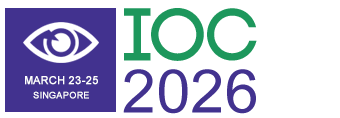Title : Chemodenervation of comitant paediatric strabismus with botulinum toxin: A longitudinal retrospective study in a tertiary referral centre
Abstract:
Introduction
Strabismus is a common presentation within paediatric ophthalmology, affecting approximately 2-3% of the population. An alternative to extraocular muscle surgery is the use of therapeutic botulinum toxin. Recent evidence has supported the role of Botulinum in chemodenervation in correcting small to moderate deviations, although the results can be variable when compared to surgery. We aimed to examine how long patients could retain a reduced squint angle as the botulinum toxin wanes as well as any adverse outcomes.
Methods
We retrospectively collected pre- and post-operative squint data from children undergoing botulinum toxin chemodenervation for strabismus at a tertiary referral centre (Royal Hospital for Children, Glasgow) between 2018-2022. Their orthoptic follow-up allowed us to compare the angle of deviation before surgery and how this had changed at 1, 3, 6, and 12 months post-operatively (markedly affected by COVID-19 pandemic). Surgical details were taken from operation notes and all patients received Botox® (Allergan) in one or two rectus muscles.
Results
We included a total of 100 patients, of which 70 were esotropic and 30 were exotropic. The mean age was 8.5 years (range 6 months to 15 years) including 40 males and 60 females.
For exotropic patients measured at distance; at 1 month the mean difference in prism dioptres was 10.5 with 95% CI of (5.3 to 15.7) and at 12 months was 4.9 with 95% CI (0.9 to 8.9). This was less pronounced for near measurements at 1 month the mean difference in prism dioptres was 3.9 (95% CI -4.4 to 12.2) and at 12 months was 3.4 (95% CI -0.7 to 7.6).
For esotropic patients measured at distance; at 1 month the mean difference in prism dioptres was 20.4 with 95% CI of (12.4 to 28.4) and at 12 months was 14.4 with 95% CI (3.4 to 25.2).
With a greater effect for near, at 1 month the mean difference in prism dioptres was 24.2 with 95% CI of (17.0 to 31.3) and at 12 months was 13.5 with 95% CI (1.5 to 25.4).
The rate of pre-operative diplopia was 29.6% (29/98 patients) and 36% (9/25 patients) of those who had pre-operative diplopia had resolution. The rate of ptosis was 34.8% (23/66 patients) all resolved. There were no recorded adverse effects such as permanent loss of vision or globe perforation.
Overall, thirty BTXA injections were performed in 2018; twenty-one in 2019; eight in 2020; twenty in 2021 and twenty-nine in 2022. Data gaps were due to COVID-19 Pandemic.
Conclusion
Our results indicate that chemodenervation using Botox is a useful tool in managing squint, with evidence some patients maintain a lasting benefit beyond the expected 6 months. The injections were also associated with infrequent side effects, which were commonly transient in nature. The use of Botox is much less labour-intensive than muscle surgery and can be facilitated on already fully booked theatre lists especially when dealing with the current waiting times fall out from the COVID-19 pandemic.
Audience Take Away:
- Botox is a useful tool in managing squint, with evidence some patients maintain a lasting benefit beyond the expected 6 months
- The injections were also associated with infrequent side effects, which were commonly transient in nature
- The use of Botox is much less labour-intensive than muscle surgery and can be facilitated on already fully booked theatre lists especially when dealing with the current waiting times fall out from the COVID-19 pandemic
- Whilst the findings are promising there is need for more research in this area, especially given the limited number of exotropes in this study




